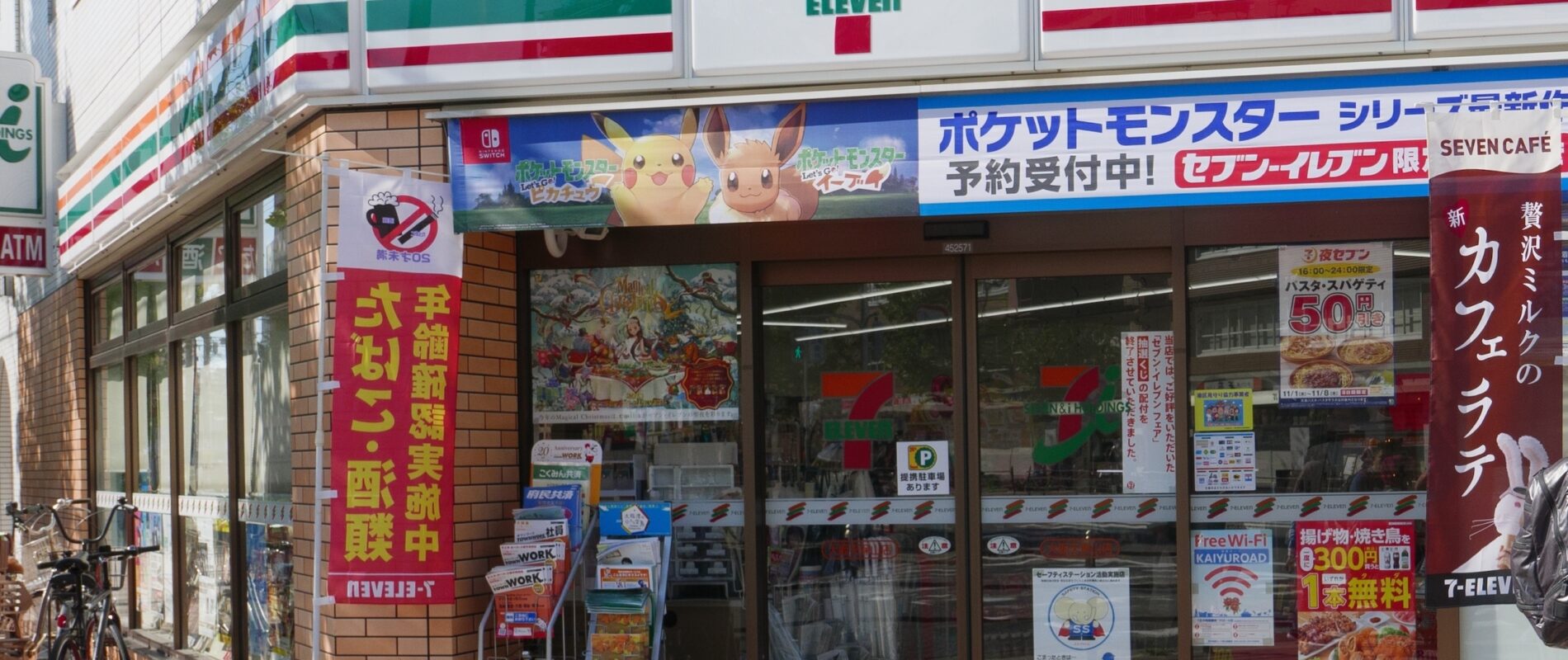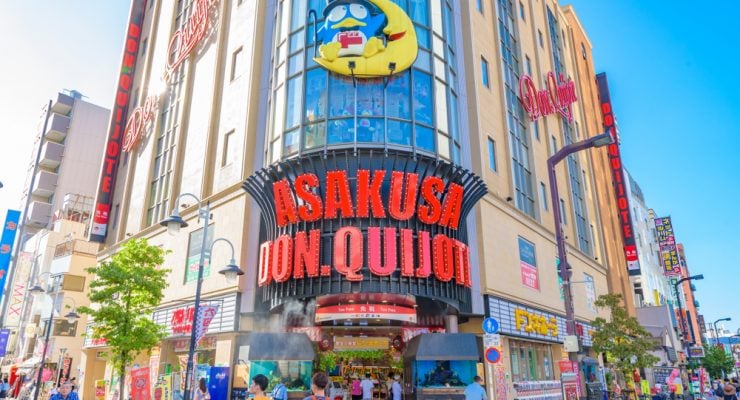7-Eleven, Family Mart, Lawson… These names will sound familiar to anyone who’s traveled to Japan. A daily stop for many locals, Japan’s konbini (short for convenience store) take the basic concept to a whole new level, offering food, hygiene products, electronics, household items, newspapers, and an array of services, all available 24/7.
Japan is home to over 55,000 konbini. That’s roughly one for every 2,000 people!
What makes them so beloved isn’t just the massive selection of essentials. They also offer a surprising number of services, many of which might be not expected by tourists or expats.
Here’s a quick guide to getting the most out of this incredibly convenient cornerstone of Japanese life.
How did konbini start and why are they so popular?
Despite being a quintessential part of modern Japanese culture, the konbini is actually an American invention. The word konbini comes from konbiniensu sutoru, a Japanese rendering of “convenience store.”
After World War II, J.J. Lawson (a name you’ll recognize if you’ve been to Japan) is credited with creating the modern convenience store in the U.S. His company quickly spotted the opportunity in Japan, with its dense population and growing demand for quick, accessible services. The first Lawson konbini opened in Toyonaka in 1975. While Lawson’s U.S. operations later folded, the brand flourished in Japan—today, it’s one of the country’s leading convenience store chains.
So, what fueled their rapid rise in Japan?
- Social change: As more Japanese women entered the workforce, the traditional household structure began to shift. With less time for home cooking, many turned to konbini for quick, affordable meals like onigiri and agemono.
- Work culture: Japan’s famously long work hours and short breaks led to growing demand for fast food options and services.
- Employment opportunities: Konbini jobs, often staffed by students or older workers, provide flexible work and are in constant demand due to high turnover.
What can you do at a konbini besides shopping?
1. Withdraw money
Despite its high-tech reputation, Japan still relies heavily on cash. Fortunately, most konbini ATMs offer English-language options and accept foreign cards.
Just note that fees (110–220 yen) may apply, and may be higher on weekends.
There are also daily withdrawal limits:
- 7-Eleven: 100,000 yen/day (up to 30,000 yen with American Express)
- Family Mart: 100,000 yen/day
- Lawson: 50,000 yen/day
2. Pick up packages
Can’t get to the post office before it closes at 3 p.m.? Konbini to the rescue. There, you can buy stamps and postage.
You can even have parcels delivered to your local konbini. Simply use the store’s address when ordering online. To pick up a package:
- Go to the Loppi (red kiosk) with your tracking and confirmation codes
- Print your ticket
- Present it to the cashier to receive your parcel
3. Send luggage
Traveling light? Use takkyubin delivery service to ship bags to your destination.
- Great for large suitcases (up to 25 kg for about 2,030 yen)
- Fill out the purple form with sender/destination info, contents, and delivery date
- Plan ahead: delivery may take up to 3 days
4. Pay bills
Water, gas, electricity, telephone… konbini let you pay nearly all your bills. Bring the bill with a barcode. The cashier will scan and take your cash payment
5. Buy tickets for events and attractions
Tickets for many attractions and activities, such as the Ghibli Museum, can only be bought in konbini.
Two ways to buy:
- Use a self-service kiosk (FamiPort at Family Mart or Loppi at Lawson; usually in Japanese only)
- Book online and pay at a konbini using the barcode or reservation number (ideal if you don’t have a Japanese credit card)
6. Print, scan, and fax
Need to print a document? It’s just 10 yen per page!
- Use a USB stick, Bluetooth, cable, or the Network Print app
- Choose black & white or color, and paper weight
- Scanning and faxing are also available
7. Other services
Konbini really earn their name. Depending on the location, you might also be able to:
- Use the bathroom
- Charge your phone
- Connect to free Wi-Fi
- Do your laundry (at select Family Marts)
With so many uses packed into one place, it’s easy to see why konbini are a beloved part of daily life in Japan—for both locals and visitors alike.












 Français
Français English
English




0 comments
{{like.username}}
Loading...
Load more